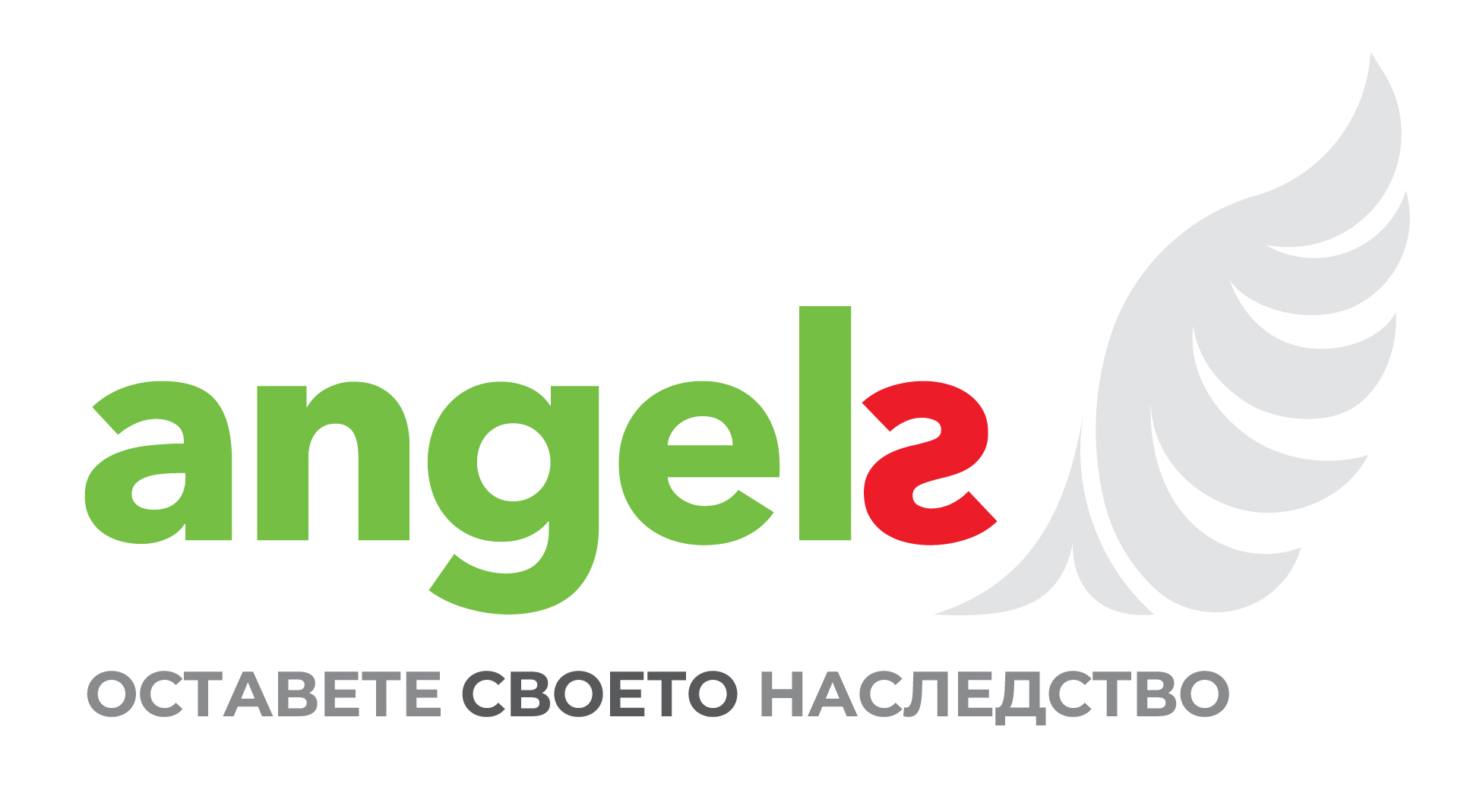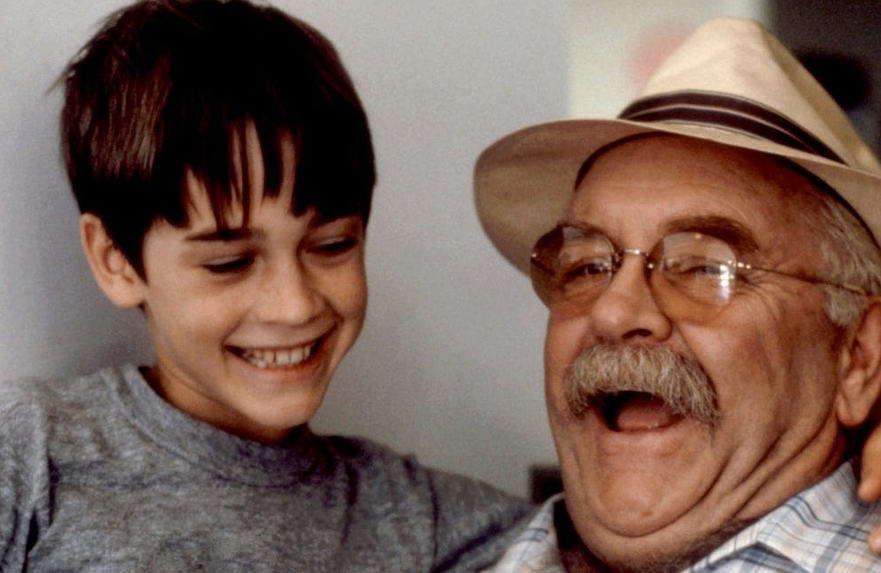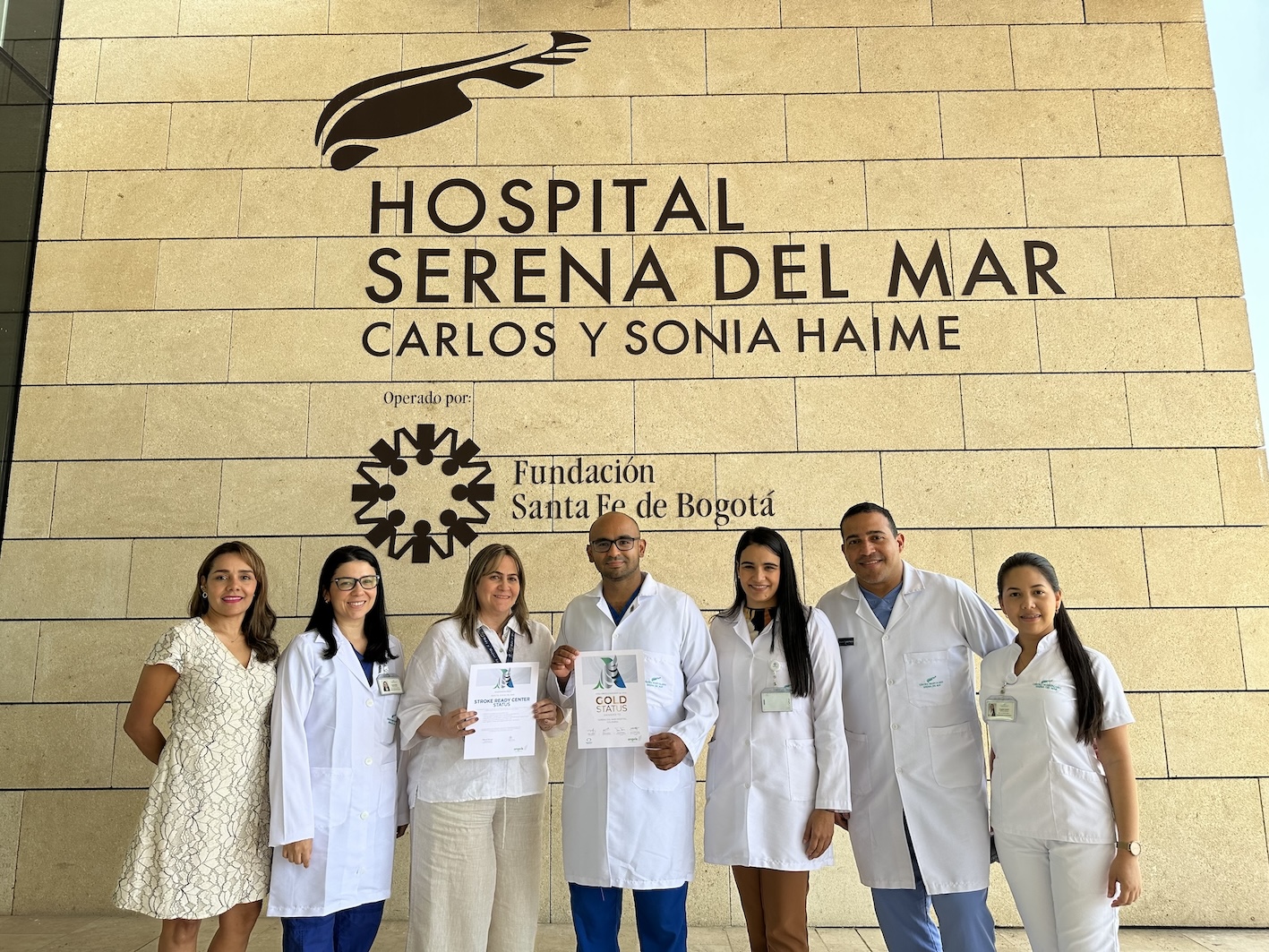Достигането до върха на играта изисква упорита работа и амбиция. Да останеш там? Усърдна работа и амбиция, казва неврологът д-р Марчин Рогозиевич, чиято болница в Полша е единствената в света, която достига диамантен статут в 13 последователни издания на наградите на ESO Angels.
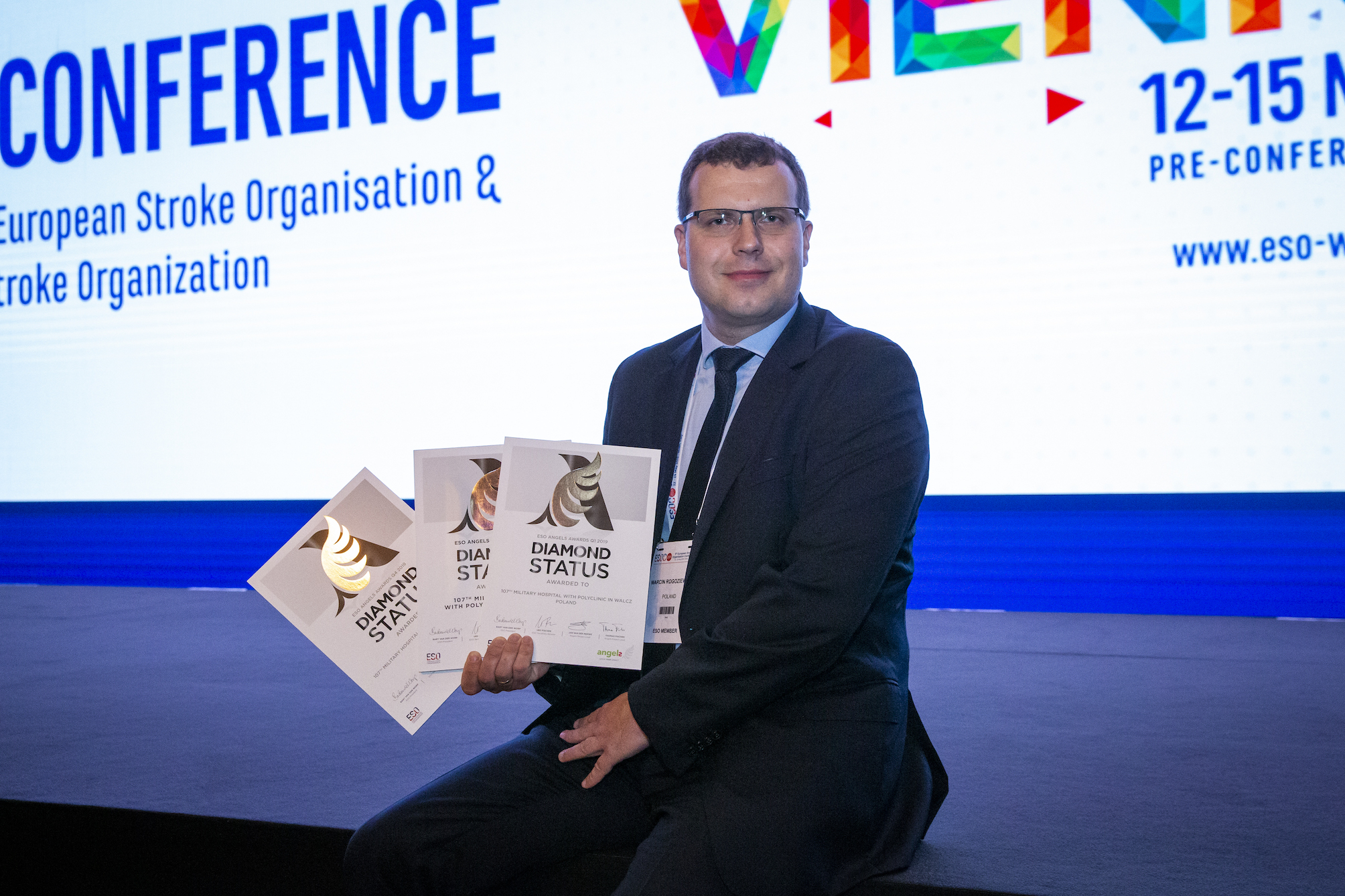
Две събития решително промениха курса на лечение на инсулт във Военната болница 107 във Валц в северозападна Полша. Най-скорошното от тях се случи през 2018 г., когато след запознаване с Инициатива Angels“, специализираното отделение за инсулти в болницата въведе данните за лечението си в регистъра за качество на грижите при инсулт RES-Q за първи път. Откритието, че са се квалифицирали за златна награда на начално ниво, макар и само по себе си постижение, предизвика техния конкурентен дух. Четвъртото тримесечие на 2018 г. ще бъде последният път, когато 107 Военна болница трябва да бъде удовлетворена от нещо по-малко от диамантен статут.
По-ранното събитие се случи в края на 2015 г., когато д-р Марчин Рогозиуич стана ръководител на неврологията във Военната болница 107.
Ако д-р Рогозиевич търсеше предизвикателство, той беше дошъл на правилното място. „Лечението на остър инсулт, както и ранните грижи след инсулт, съществуваха много фрагментарно“, казва той. „Скоростта на реканализация се колебаеше на ниво от няколко процента и имаше ниска осведоменост за ползите от тромболизата.“
Намирайки недостиг на всичко, новият ръководител на неврологията осъзнава, че почти всичко трябва да се промени, така че той го прави.
Амбициите на д-р Рогозиевич за трансформиране на неговия отделение не се ограничават само до инсулт. През следващите няколко години те ще развият капацитета за лечение на широк спектър от неврологични нарушения, включително множествена склероза, спастичност след инсулт, фокална дистония и полуфациален спазъм, а през 2018 г. партньорството на неговия отделение с Инициатива Angels“ направи пробив.
Простота и доверие
До 2018 г. д-р Рогозиуич вече плаваше с тесен кораб. Като най-младият невролог в своя отделение, той имаше достатъчно основание да разсъждава върху естеството на лидерството и заключението му беше, че един лидер трябва да се радва на уважението и абсолютното доверие на своя екип. Трябваше да се грижи за отбора си, да го защитава и да го уважава, но също така да бъде взискателен и бдителен, когато става въпрос за представяне.
Заявявайки се за такъв лидер, д-р Рогозиуич създаде екип по инсулт, който се основава на екипна работа, дисциплина и организация.
„Острото лечение на инсулт включва верига от хора от различни области на болницата и всичко трябва да работи добре заедно“, казва той. „Необходимо е да се създаде кратка и проста процедура, която всеки член на персонала трябва да има предвид. Простотата е важна. Всеки член на персонала има възложена задача и трябва да знае точно какво да прави. Всеки човек трябва да се довери на другия. Трябва да вършите работата си бързо и добре и след това да предадете пациент на следващия човек във веригата.“
Този стандартизиран подход означаваше, че когато пътят на д-р Рогозиуич пресече с „Ангелите“, мигновено имаше брак на умовете. Но това, което трябваше да бъде оспорено, беше убеждението му, че нищо повече не може да се направи, за да се съкрати средното време от вратата до иглата, което тогава висеше малко над 50 минути.
За да се квалифицират за диамантен статус в наградите на „Ангели“ на ESO, болниците трябваше да лекуват 50% от пациентите с исхемичен инсулт за по-малко от 45 минути.
„След въвеждането на нашите данни в RES-Q се оказа, че нашите постижения са достатъчни само за златен статус“, казва д-р Рогозиуич. „Анализирахме процедурата, сравнявайки я и с други центрове. Установихме, че започването на тромболиза в КТ лабораторията значително намалява времето от вратата до иглата.“
През следващото тримесечие 107 Военна болница достигна диамантен статут, постижение, което, както казва д-р Рогозиуич, сега се е превърнало в техен постоянен дом.
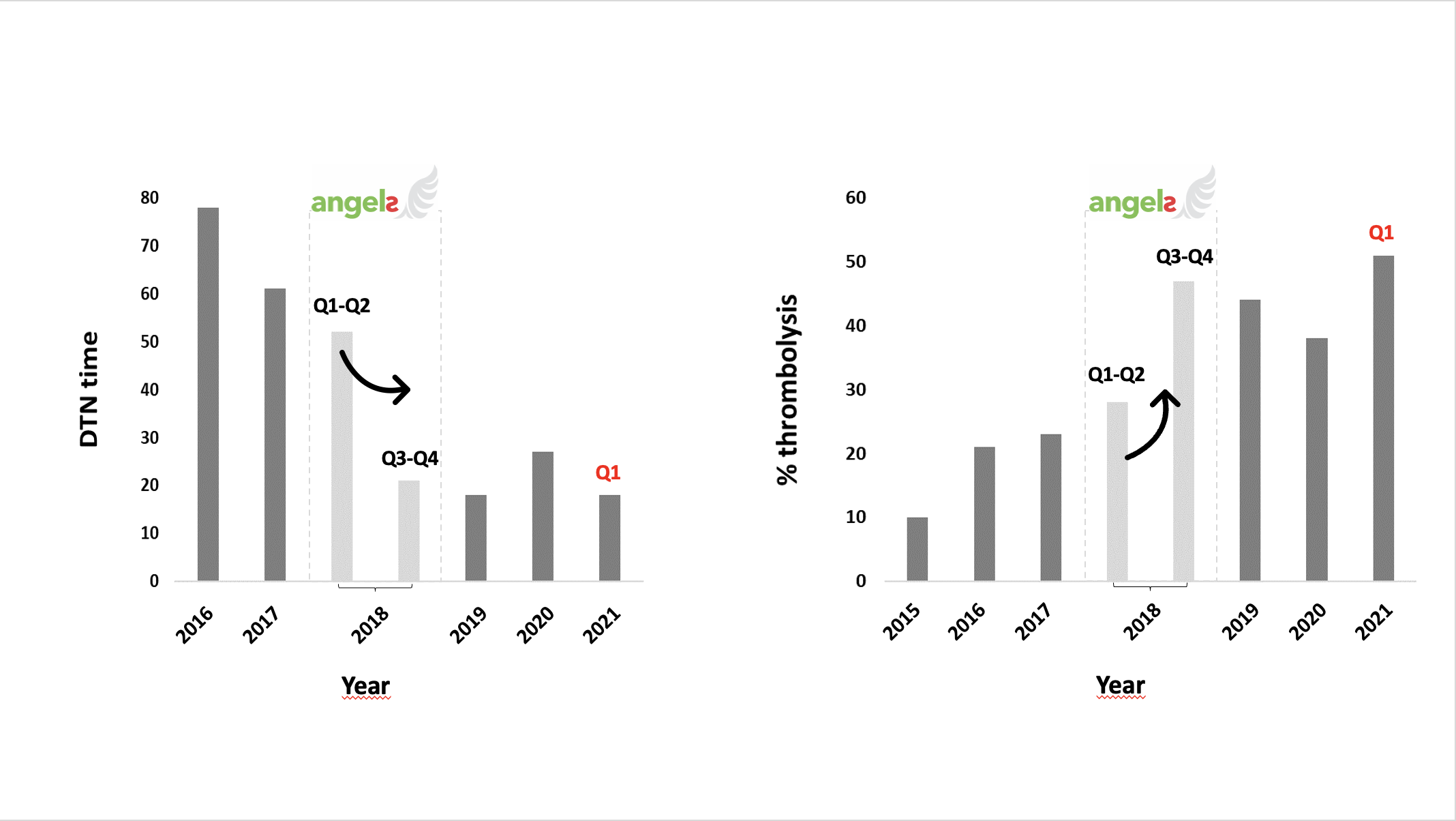 Ключът към постоянството
Ключът към постоянството
„Диамантът е просто една бучка въглища, която се заклещва в работата си“, казва Леонардо да Винчи – метафора, която служи за описване на подхода на д-р Рогозиуич към съвършенството. Неговата болница досега е спечелила 13 последователни диамантени награди, подвиг на последователност, който никоя друга болница все още не е успяла да възпроизведе. Ключът към последователността обаче не се крие в 13-те сертификата, които красят стените на отделение по неврология, а в строго съответствие с процедурата и ангажимента за непрекъснато усъвършенстване.
„Ние не правим нищо от това за награди, а за подобряване на качеството на лечението“, казва д-р Рогозиуич. „Разбира се, наградите са важни, но те са само добавена стойност. Ако целта ви е да получите награда и да я покажете в местната общност, това е
няма гаранция, че ще поддържате най-високо ниво на производителност. Но ако искате да подобрите качеството на лечението, ще го правите последователно и ще последват диамантените награди.“
Решителността да се справим по-добре днес, отколкото вчера, доведе до това екипът по инсулти във Военната болница да изпревари няколко критерия за награди. Три години след поставянето на първия си диамант, те съобщават за средно време от вратата до иглата от около 22 минути, а тяхната тромболиза от около 45% е сред най-добрите в света. „Това е ефектът от внимателното предварително уведомяване“, твърди д-р Рогозиевич. „Трябва да знаем, че пациент с инсулт се приближава, за да се подготви за действие.
„В допълнение, нашият екип силно вярва, че тромболизата ще намали смъртността и ще подобри резултатите на пациент. Когато решението за прилагане на тромболитично лекарство не е съвсем ясно, винаги се опитваме да открием възможността за използване на това лечение. Разбира се, когато има абсолютни противопоказания, ние се оттегляме, но в двусмислени ситуации, когато нито прилагането на лекарство, нито прилагането му не биха били грешка, ние по подразбиране използваме лечението.“
Малко магия
За лекар, който е толкова строго регулиран от процедурата и отговорността, д-р Рогозиуич звучи неочаквано поетично, когато е попитан за избора си на кариера, като се позовава на „впечатление от съвършенството на човешкото тяло като набор от чудесно сътрудничещи органи“.
„Учих в Медицинската академия в Бидгошч и винаги свързвах неврологията с малко магия“, казва той. Но под магията се крие взискателната и привлекателна логика на невроанатомията и неврофизиологията. „Аз съм човек, създаден за конкретни задачи“, казва д-р Рогозиуич. „Анализирам и предсказвам различни ситуации, след което се опитвам да изпълнявам възложената задача възможно най-добре, като я гледам от различни ъгли.“ Но независимо колко хладнокръвен и смел трябва да бъде вземането на решения, той никога не забравя, че „зад всяко решение може да има и човешка трагедия“.
